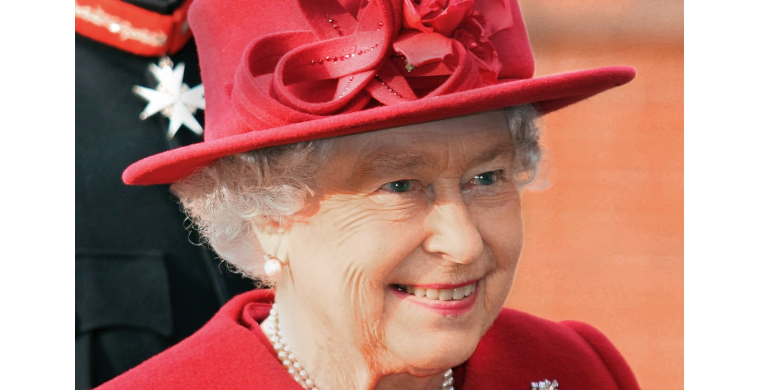THE PASSING OF THE QUEEN
Rev. Canon J. John
September 8, 2022
'The Queen has died.' We have always known that someday we would hear those words, but that certainty has not robbed them of either their sadness or their solemnity. In the sea of tributes now overwhelming us, how should we react?
Our first reaction should surely be appreciation. We need to reflect with gratitude on all that the Queen achieved for the nation and the Commonwealth. The reign of Queen Elizabeth II was certainly long, yet length of reign -- like length of life -- is no measure of greatness. The Queen's accomplishment was not simply to reign for a long time, but to reign well. It is an achievement made even greater because she ruled in difficult times. She has been compared to both the first Queen Elizabeth and to Queen Victoria yet, unlike them, it was not her lot to rule at a time of either national glory or imperial splendour. Our Queen Elizabeth came to power in a Britain still recovering from war. Her reign witnessed the end of the British Empire and the emergence of a new, confused Britain, increasingly adrift from its traditional values. During her reign fashions in culture, art and manners came and went; kings, emperors, presidents and regimes flourished only to be swept away by time.
Yet if the winds of change blew strongly the Queen seemed unaffected by them. Whatever happened to the nation -- economic turmoil, terrorist atrocity or political uncertainty -- the Queen was there and the nation found comfort in that. In an age of uncertainty and confusion she came to embody what Britain stood for. For that solidity and stability in turbulent times we are grateful. It is salutary to read the words of the Queen's coronation service and see all that, so long ago, she promised to defend for the nation and the church. At the end of that long life, we can say with appreciation that she fulfilled her vows and did what she promised. She kept the faith. We are doubtless called to lesser things, but may we keep our promises as well as she did hers.
Our second reaction should be acknowledgement. Something worth dwelling on is that the Queen's achievements came not from her genetics, her upbringing or her force of will but from something more. She had a deep and authentic Christian faith, which she took seriously and sought to live out. It seems to me evident that the Queen recognised two things. The first was her own frailty and weakness. She had the gift, so often denied to the powerful, of being humble and was wise enough to realise that to reign well required more than human skills and strength. The second thing she recognised was that to be monarch meant that she needed God to give her strength. Only the foolish would see her life as a tale of unending privilege and overwhelming wealth. The reality is that, from the moment of her untimely accession to the throne, she served what was, in effect, a life sentence without hope of remission. True, she served it out in a gilded cage, but she also served it under the increasingly harsh spotlight of a curious and cruel world.
Physically, the Queen was a small woman but the title Majesty was totally appropriate for her. She was a little lady with a very big God. In the first of the Beatitudes Jesus says, 'Blessed are the poor in spirit, for theirs is the kingdom of heaven.' This was a woman who recognised that the only way to rule an earthly kingdom was to seek a heavenly one. Our circumstances may bear very little comparison with hers but the way she lived out her faith should inspire us all.
Our third reaction should be that of assurance. With the Queen's death, a dark shadow has fallen across our land and beyond. A landmark which we took for granted but which gave us all our bearings, has fallen. In her quiet way, the Queen defined what it is to be British. Other nations may look to their flags or constitutions for their identity; Britain looks instead to its monarchy.
These are sad days but, as the Queen herself would no doubt have wished, those of us who are Christians can -- should -- lift our eyes upwards.
God is our refuge and strength, an ever-present help in trouble. Therefore we will not fear, though the earth give way and the mountains fall into the heart of the sea, though its waters roar and foam and the mountains quake with their surging. (Psalm 46:1-3 niv)
Twice in that psalm comes the reassuring refrain, 'The Lord Almighty is with us; the God of Jacob is our fortress.' It was then and it is now.
Our world is shaken but our God stands firm. Queens and kings pass away; the eternal God does not.
Listen to the passing of the Queen Podcast here: https://player.captivate.fm/episode/27e9ed1c-db93-43b3-82f0-80eb4fb8b6f1?mc_cid=c8e5d1811f&mc_eid=6ae8d8eac7
END














